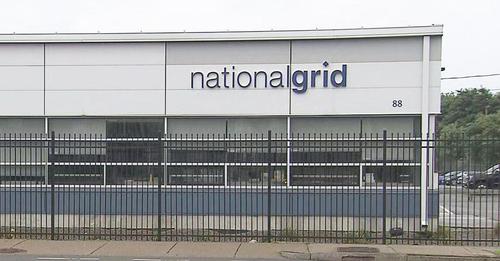Mass Solar Initiative Offers a Bright Solution
In the midst of concerns for another National Grid rate increase in October 2023 the Mass Solar Initiative continues its efforts to educate and inform skeptical homeowners about the benefits of solar energy. This Initiative believes the state has reached a tipping point. It seeks to accelerate residential adoption of solar energy, reducing carbon footprints and alleviating the strain of escalating energy expenses.
Mass Consumers Face Another Electricity Increase in October
National Grid has formally requested approval from the Department of Public Utilities to increase electric rates in October 2023. This rate adjustment is intended to offset the expenses incurred from storms in 2021, notably the October 2021 nor’easter that resulted in a financial burden exceeding $50 million for the company.
Voice for Change: Conservation Law Foundation
The Conservation Law Foundation, a prominent environmental group, has submitted a compelling letter to the Department of Public Utilities. They advocate for regulations requiring electric companies, including National Grid, to reinforce their infrastructure against foreseeable storm events. This proactive approach could spare customers from bearing the brunt of ensuing costs.
In the midst of concerns for another Ngrid rate increase the Mass Solar Initiative continues its efforts to educate and inform skeptical homeowners about the benefits of solar energy. This initiative seeks to accelerate the adoption of solar energy, reducing carbon footprints and alleviating the strain of escalating energy expenses.
Addressing National Grid’s Proposal
At the heart of the matter lies National Grid’s request for Department of Public Utilities’ approval to raise electric rates in October 2023. This rate hike aims to offset the financial blow from 2021 storms, especially the costly October nor’easter. However, the frequency and intensity of storms have exceeded the company’s projections, resulting in unexpected storm repair costs exceeding $100 million over three years.
Enhancing Resilience Against Storms
In response to this concerning trend, the Conservation Law Foundation underscores the importance of bolstering infrastructure. The goal is to withstand the growing impacts of climate change and more frequent storms. By proactively enhancing grid resilience, companies like National Grid could potentially reduce the need for constant rate increases, thus easing the burden on consumers.
Investing in a Stronger Grid
Over the past five years, National Grid has made commendable progress in improving its infrastructure. From rigorous inspections and vegetation management to implementing automated power restoration systems, replacing poles, and upgrading high-voltage switches, the company is actively enhancing the grid’s durability and reliability.
Challenged by Climate Change
However, experts highlight a significant challenge: the growing impact of climate change. As storms become more severe and frequent, the potential for even higher rates looms. The Conservation Law Foundation points to the long-term effects of persistent rate hikes, potentially overburdening consumers.
Pledges to Resilience
National Grid responds by reiterating its commitment to resilient infrastructure development. Their investments in flood mitigation, underground cable replacement, advanced fault location systems, and robust construction standards align with the Department of Public Utilities’ ongoing efforts to safeguard the electric grid from climate-related risks.
In this dynamic scenario, the Mass Solar Initiative continues its efforts to support education and adoption of solar energy. By continuing to support solar energy conversion and prioritizing infrastructure resilience, stakeholders can collectively cushion the impact of storms, climate change, and surging energy costs. Through proactive strategies and strategic investments, the region can pave the way for a more sustainable and economically viable energy future.


